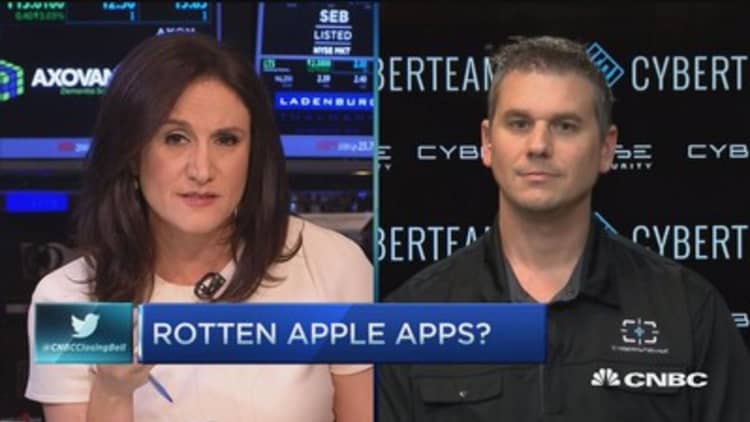Earlier this week, the advertising industry was alarmed at a report that suggested Google was developing an ad blocker for its Chrome browser.
The report, it turns out, is partially true. Google is thinking about making the ad-blocker – and has discussed the idea with others in the advertising industry — but the end-product might not be as threatening as it first sounded.
Google has talked with the Coalition for Better Ads — an ad industry trade group — regarding an ad blocking feature on its Chrome browser, several sources told CNBC. Theoretically, it would work similarly to Chrome's update in 2015 that blocked all ads that used Adobe Flash technology, and would not discriminate if the ad was placed by Google's ad exchanges or another competing service, a source said.
But if it becomes a reality, the end product would likely be very friendly towards advertisers and media companies, and adhere to industry standards that are currently being hashed out, said Coalition for Better Ads' counsel Stu Ingis. Those standards are likely to be determined in the next six months to a year, Ingis said.
Ingis said calling the proposed product an "ad blocker" isn't strictly accurate. "To me an 'ad blocker' is a company blocking ads and eliminating the consumer interest in experience without any dialogue with these [advertising and publisher] companies," said Ingis. "I would view anything that is adopting this type of standard process set forth by the industry based on the consumer research as not an 'ad blocker.'"
If Google does decide to make the Chrome feature, the goal would be to provide users with choice and options about their online experience, a Google spokesperson said. Google agreed that it would also be in line with guidelines set by the advertising industry.
"We've said publicly for awhile now that Google alone cannot solve the bad experiences users have online — we need a data-driven industry approach to improving ads experiences," a Google spokesperson said. "As a member of the [Coalition], we've been talking to a number industry associations, publishers, advertisers and other technology companies about the development of the Better Ads Standard. One option we're exploring is how Chrome could help support this Standard. We can't confirm any additional details or timing right now."
The Coalition is creating guidelines to improve the online ad experience with input from its members, which include Facebook, News Corp., Procter & Gamble and Unilever, as well as agencies like Group M and Omnicom. The organization is also including information from its 25,000-person survey on what they disliked about online advertising. Google has been a "very collaborative participant," Ingis added.
But the ad industry's worries aren't completely soothed, and agencies say there are still unanswered questions. IPG Mediabrands senior vice president of ad operations Mitch Weinstein pointed out several potential conflicts-of-interest. Would the service would only allow ads served (or placed on websites) through Google's owned-and-operated services? Would YouTube ads would be blocked if watched through a Chrome browser?
"[There's] a lot of questions on this, but it could potentially be a very big deal," he said.
Google has no plans to exempt itself, a source with knowledge of project said.
Slow-loading websites, inaccessible content, and cluttered webpages have made many people hate online advertising, Weinstein said. At the same time, ads are a necessary part of the ecosystem because it's a major source of revenue for online publishers. IPG Mediabrands is also working with several organizations to make sure its ads are "lighter and less intrusive," to keep customers happy.
Advertisers are always concerned when they hear the words "ad blocker," said BBH communications planner Zack Green. But if Google creates its own with everyone's input, it could be an big win for them.
The company could develop its own ad format that wouldn't be blocked, Green pointed out. It would also force the entire industry to think more "creatively" to find ways to weave ads into content, he added.
"Google is giving people what they want, but it's also may be a place for Google to come up with their own bespoke in-line ad opportunities," he said.
Watch: How to spot a legitimate ad blocker



